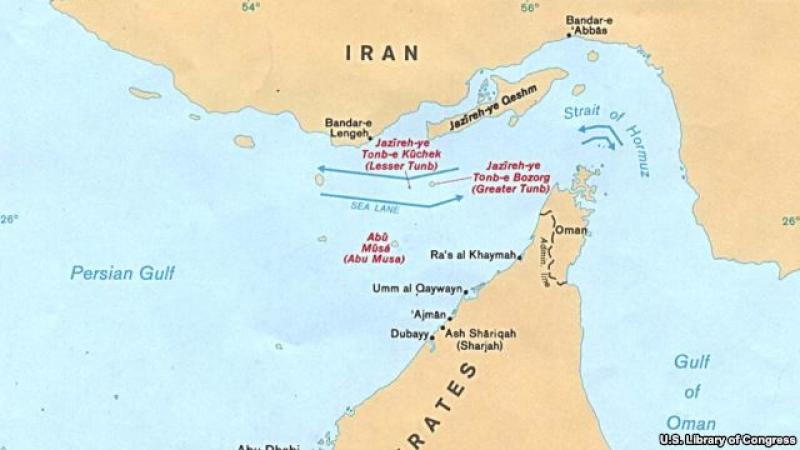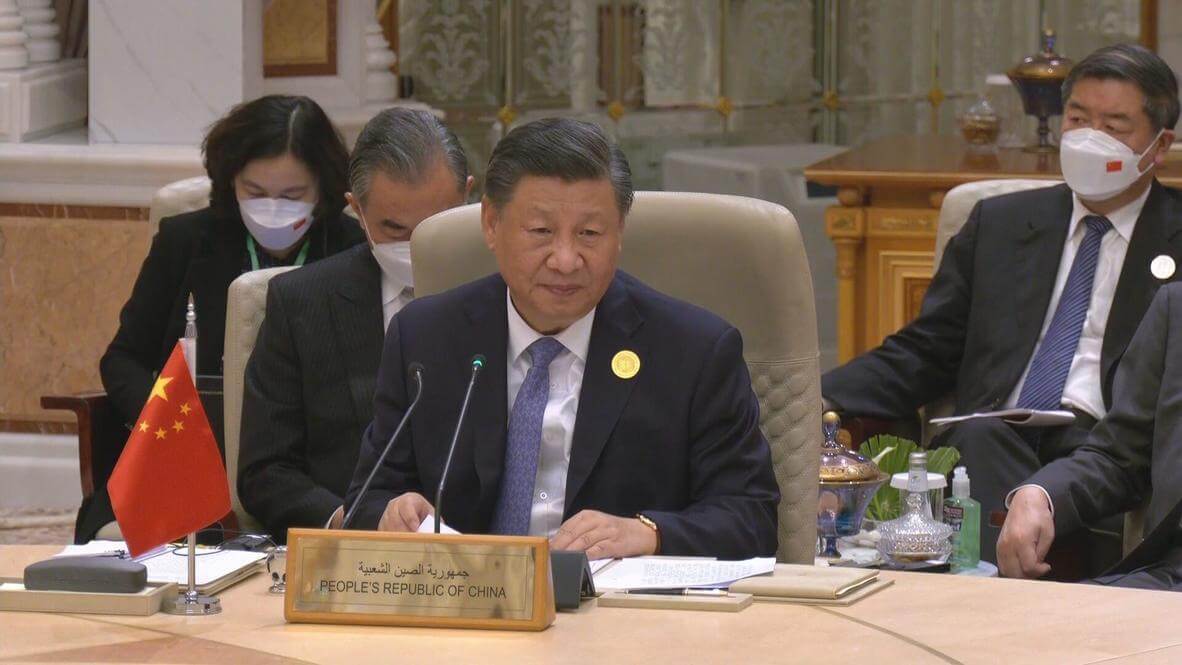Iran on Sunday summoned the Chinese ambassador to Tehran in order to express its condemnation of China for endorsing the United Arab Emirates’ (UAE) claim to three islands in the Persian Gulf that Tehran says form part of its territory.
In a statement released following the Gulf Cooperation Council (GCC)-China summit in Riyadh on Friday, which was attended by Chinese President Xi Jinping, GCC and Chinese authorities expressed their “support” for a “peaceful” resolution of the dispute between the UAE and Iran over Greater Tunb, Lesser Tunb, and Abu Musa.
The press release called for “bilateral negotiations in accordance with the rules of international law” to resolve the dispute, which goes against Iran’s stance of not holding talks regarding the islands.
Iranian foreign ministry spokesperson Nasser Kanaani called the statement a continuation of the policy of “Iranophobia,” saying it is a “fruitless attempt” to cover up the UAE and Saudi Arabia’s war in Yemen and their support “terror groups.”
Kanaani said the three islands are an “inseparable and eternal part” of Iran, which “considers any claim to these islands as a destabilising factor and interference in its internal affairs and its territory, and strongly condemns it.” He warned that the Iranian military will guard the country against “maritime mischief and insecurity.”
He also noted that Chinese Ambassador Chang Hua spoke with foreign ministry officials on Sunday, who stressed that the islands “will never be up for negotiations with any other country.”
Yet Iran's language about summoning the Chinese ambassador shows its desire to limit tensions
— Samuel Ramani (@SamRamani2) December 12, 2022
Iran is showing its displeasure with China's stance without condemning Beijing like it would if a Western country made statements of this kind
Furthermore, Iranian foreign minister Hossein Amirabdollahian tweeted that the islands are an “inseparable” part of Iran and “belong to this motherland forever.”
Former Iranian diplomat Farji Rad told Entekhab news that the statement shows that “China’s priority in the Persian Gulf is the Arab countries,” accusing Beijing of supporting Tehran’s rivals.
The dispute dates back to 30 November 1971, when Iran, under the leadership of the Shah Mohammad Reza Pahlavi, invaded and took control of the three islands following British withdrawal. The emirates of Sharjah and Ras Al Khaimah, which claimed the islands belonged to them, condemned Iran’s actions.
Following the invasion, Sharjah and Ras Al Khaimah respectively acceded to the UAE in December 1971 and January 1972, which consequently sparked the dispute.

Tehran has justified its capture of the islands, saying they were a part of the Persian Empire since at least the sixth century BCE, a claim that Abu Dhabi disputes, claiming that Arabs have controlled the islands since the seventh century CE. The lack of historical documentation and research has further complicated the issue.
Apart from the remarks on the islands, the GCC-China statement says it is crucial to “ensure the peaceful nature of the Iranian nuclear programme, in order to preserve regional and international security and stability.” It calls on Tehran to “fully cooperate” with the International Atomic Energy Agency (IAEA), weeks after Iran condemned an IAEA resolution against Iran’s nuclear activities.
The statement also urges Iran to halt its “destabilising regional activities” (referring to Tehran’s support for proxies across the Middle East), prevent the “proliferation” of ballistic missiles and drones, and ensure the safety of international navigation and oil installations.
Iran rejected the comments, accusing China and the GCC of “interfering” in its internal affairs.
Nevertheless, ties between Iran and China have warmed in the recent past. Last year, they signed a 25-year strategic cooperation agreement focusing on bilateral cooperation in various fields, including economic and cultural ties. With the signing of the pact, China aims to bring Iran into the fold of its flagship Belt and Road Initiative and, in turn, hopes to expand its economic and political influence in the region.

